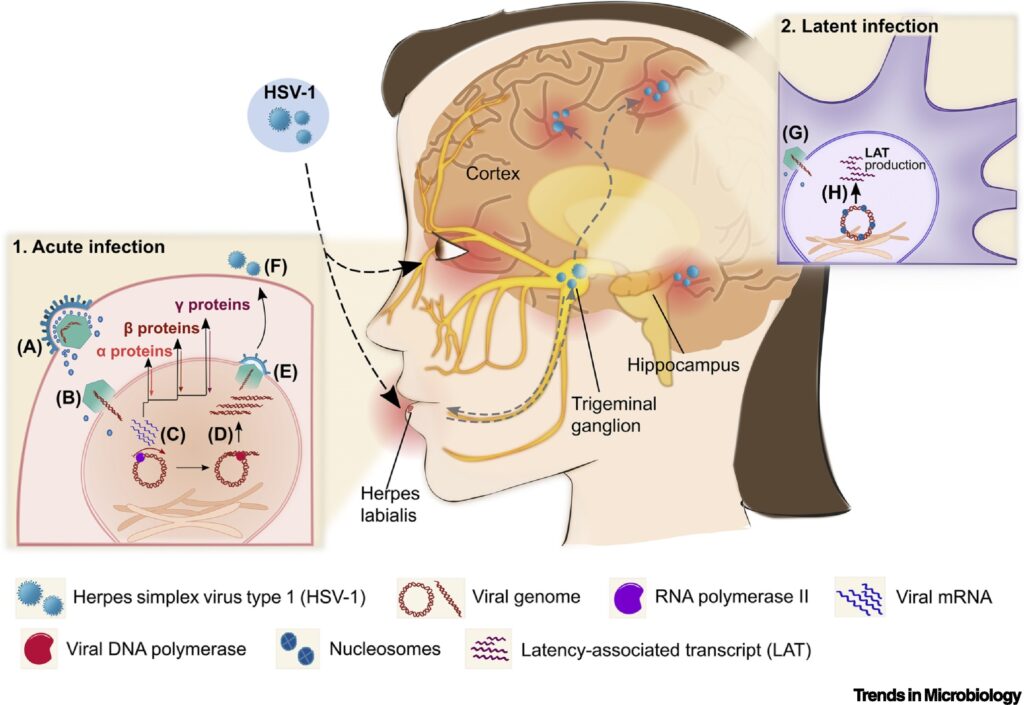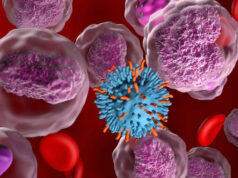
Herpes simplex virus (HSV) is a master of evasion, lying dormant in the body only to reactivate when conditions are right. Researchers have now uncovered a key mechanism behind this reawakening—the virus can hijack the immune system’s defenses to trigger its own reactivation.
How Herpes Reactivates
Scientists found that a viral protein plays a crucial role in manipulating immune responses. Instead of being suppressed by the body’s defenses, the herpes virus actually uses them as a signal to emerge from dormancy. This means that common immune system activations—such as fighting off infections, stress, or even hormonal changes—can serve as a wake-up call for the virus.
A Widespread Global Concern
Herpes simplex virus 1 (HSV-1), responsible for cold sores, affects over 3.8 billion people worldwide, with more than 60% of individuals under 50 carrying the virus. In the U.S., HSV-1 is now responsible for more new cases of genital herpes than its close relative, HSV-2.

New Hope for Treatment
This discovery has opened new doors for treatment strategies. Scientists believe that by targeting the viral protein responsible for reactivation, they may be able to prevent future outbreaks. This could lead to breakthrough therapies that stop the virus from reawakening, offering relief to millions who suffer from recurrent flare-ups.
As research progresses, this newfound understanding of herpes reactivation could pave the way for long-term solutions—potentially keeping the virus permanently at bay.
Sources: SciTechDaily, NewsRoom.



